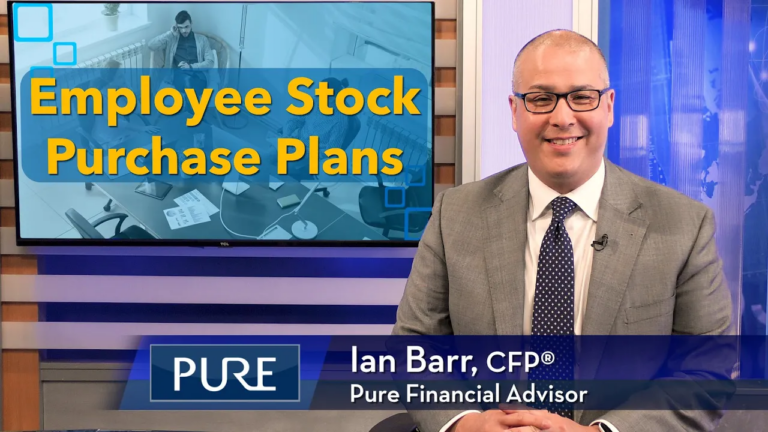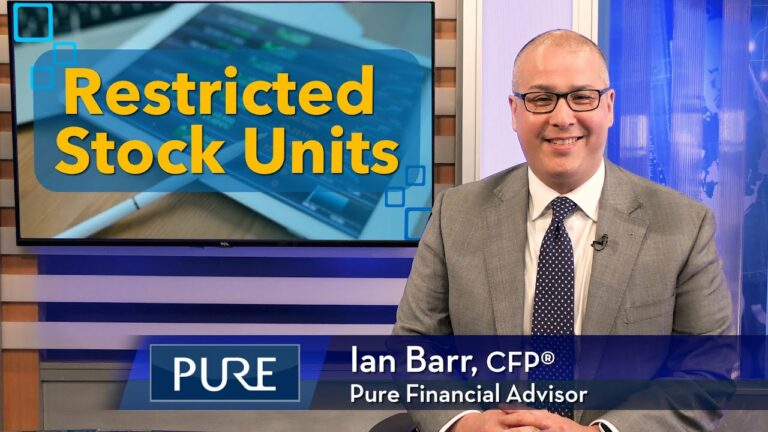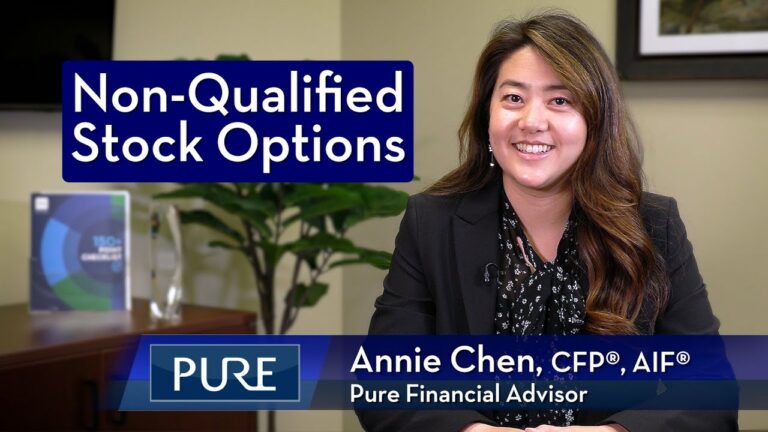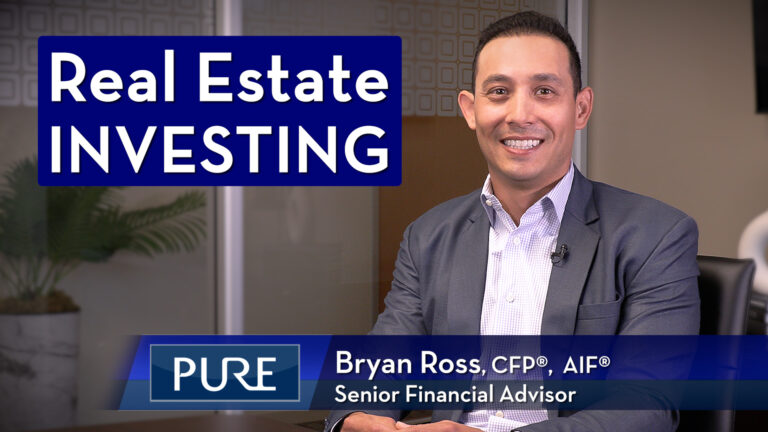Pure’s Senior Financial Planner, Richard Alexander, CFP®, AIF®, explains the difference between capital gains and dividends. Capital gains are profits from selling investments at a higher price, while dividends are income paid out by corporations to stockholders.
FREE GUIDE | 10 Tips for Real Estate Investors
Transcript
Capital Gains vs Dividends. Both are sources of income for investors. Let’s use an apple tree as analogy to illustrate the difference. Say you plant an apple tree and once that tree grows to maturity, produces apples, you pick those, and those considered are dividends. Conversely, you decide to harvest the wood from the tree to build a house, the difference in growth between when you planted it and when you chopped it down, that’s considered a capital gain.
Capital gains are profits that occur when an investment is sold at a higher price than the original purchase price. The time period you held the investment determines if it’s a short-term or a long-term capital gain. You need to hold the investment for longer than one year to be classified as a long-term capital gain, which has preferential tax treatment. Short-term capital gains are taxed as ordinary income and long-term capital gains are taxed at lower capital gains tax rates.
Dividend income is paid out of the profits of a corporation to the stockholders. You receive your portion of the distributed profit based on how many shares of the company that you own. This is taxable to you in the year you receive the income. Dividends are either classified as ordinary or qualified. Ordinary dividends are taxed as ordinary income and qualified dividends are taxed at lower capital gains tax rates. It’s important to know that these taxes only apply to investments held in non-retirement accounts. Now your custodian keeps a record of all activity within these types of accounts and issues a 1099 Tax form every year so you can prepare your tax return.
If you’d like to know more about how capital gains and dividends are a source of income in your portfolio, call Pure today for a free financial assessment.
Subscribe to our YouTube channel.
IMPORTANT DISCLOSURES:
• Investment Advisory and Financial Planning Services are offered through Pure Financial Advisors, LLC, a Registered Investment Advisor.
• Pure Financial Advisors LLC does not offer tax or legal advice. Consult with your tax advisor or attorney regarding specific situations.
• Opinions expressed are subject to change without notice and are not intended as investment advice or to predict future performance.
• Investing involves risk including the potential loss of principal. No investment strategy can guarantee a profit or protect against loss in periods of declining values.
• All information is believed to be from reliable sources; however, we make no representation as to its completeness or accuracy.
• Intended for educational purposes only and are not intended as individualized advice or a guarantee that you will achieve a desired result. Before implementing any strategies discussed you should consult your tax and financial advisors.
CFP® – The CERTIFIED FINANCIAL PLANNER™ certification is by the Certified Financial Planner Board of Standards, Inc. To attain the right to use the CFP® designation, an individual must satisfactorily fulfill education, experience and ethics requirements as well as pass a comprehensive exam. Thirty hours of continuing education is required every two years to maintain the designation.
AIF® – Accredited Investment Fiduciary designation is administered by the Center for Fiduciary Studies fi360. To receive the AIF Designation, an individual must meet prerequisite criteria, complete a training program, and pass a comprehensive examination. Six hours of continuing education is required annually to maintain the designation.












